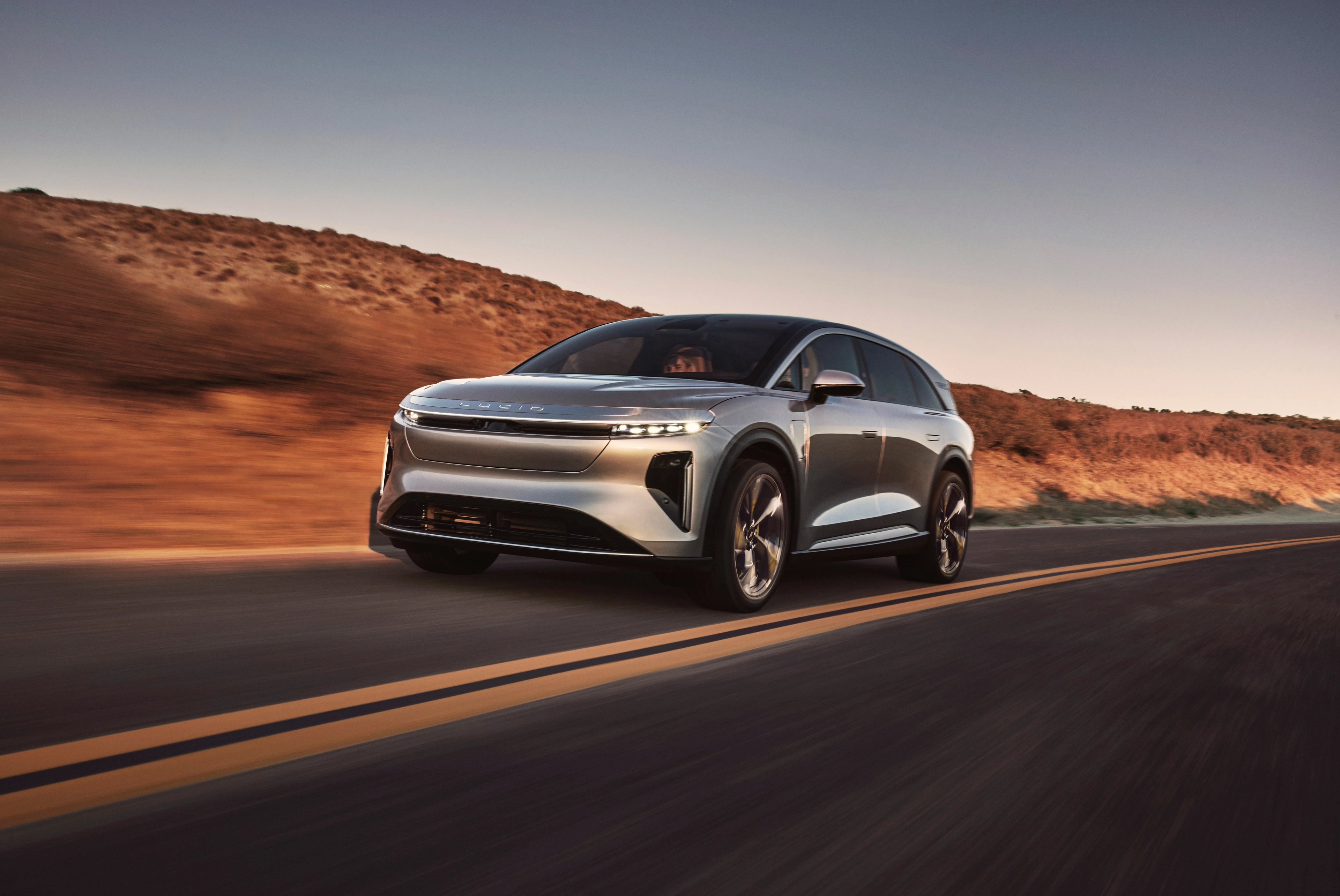Lucid Group (LCID +0.80%) has been performing better these days than it has in the past. A company once plagued by disappointing sales, product delays, and manufacturing hiccups finally began gaining sales momentum in late 2024 and throughout 2025. Unfortunately, just as investors enjoyed a little bit of positive momentum, the Trump administration decided to roll back electric vehicle (EV) incentives, including the $7,500 federal tax credit that disappeared on Sept. 30, as well as introduce tariffs on imported vehicles and automotive parts.
While Lucid will almost certainly feel the pain of the tax credit's absence during the fourth quarter, there is a slight bit of good news for its sales momentum.

Image source: Lucid.
A mixed 2025 so far for Lucid
Briefly revisiting Lucid's recent step forward in momentum, let's recall that the automaker posted deliveries of 3,309 vehicles during Q2. That was good for a strong 38% year-over-year increase, and it marked the sixth consecutive quarter of record deliveries, but it still fell short of analysts' expectations.
Further dampening the company's record deliveries was that management also toned down its 2025 production outlook from 20,000 vehicles to 18,000, citing unfavorable market conditions and external supply chain factors. Having tariffs slapped on imported vehicles and automotive parts, as well as disappearing incentives from the government, can certainly pump the brakes on such a young electric vehicle (EV) maker.
With the brief recap aside, let's dive into the little bit of good news.

NASDAQ: TSLA
Key Data Points
The truth can hurt, especially for Tesla
We've heard rumblings of this in the recent past, but more recently, Lucid's interim CEO, Marc Winterhoff, said that the company is seeing an increased number of Tesla (TSLA +2.06%) consumers jumping to try the Lucid brand.
Speaking in an interview with the Financial Times, Winteroff had a couple of things to note: "We have seen an uptick, that's definitely the case, in Europe and also here in the U.S. [Tesla's] Model S, nothing has changed in 12 years now . . . [customers] are actively looking for other options."
It certainly comes at a time when Tesla feels distracted or is perhaps having a small identity crisis. Over the past five or so years, CEO Elon Musk's attention has turned from Tesla to autonomous driving, robotics, SpaceX, national politics, and artificial intelligence (AI), and many have criticized that its EV lineup has been neglected and left to age amid the transition.
It's a fair criticism, especially if you're an investor who bought in solely for the idea that Tesla would lead the way toward global adoption of EVs. In fact, over that time frame, Tesla launched only one new vehicle -- the Cybertruck -- a uniquely designed vehicle that has received a lot of criticism on multiple fronts and failed to reach lofty sales goals set for it. It's fair to say it was a retail sales flop.
In Tesla's defense, the EV maker did unleash significant updates to both the Model 3 and Model Y but only slight updates to the Model S and Model X. That's where Lucid is seeing the benefits, as Tesla's models with fewer updates compete directly with the Lucid Air (Model S) and Lucid Gravity (Model X).

NASDAQ: LCID
Key Data Points
What's next for Lucid?
This is great news for Lucid, to be sure, and management has noted that Gravity's production is currently accelerating rapidly to finish the year on a strong note. Don't be shocked if the company adds another record delivery quarter to its tally before an expected slowdown hits during Q4.
That said, it's important for investors not to get overhyped by Lucid's sales momentum. Keep in mind that the company is still rapidly burning cash, will almost certainly need to raise capital again at some point, and is still a long road away from reaching the scale it needs to generate profits for investors.
Lucid is an incredibly risky stock and not one for every investor. And no matter how you feel about the company, investments in this type of growth stock should be limited to a very small portion of your portfolio.





